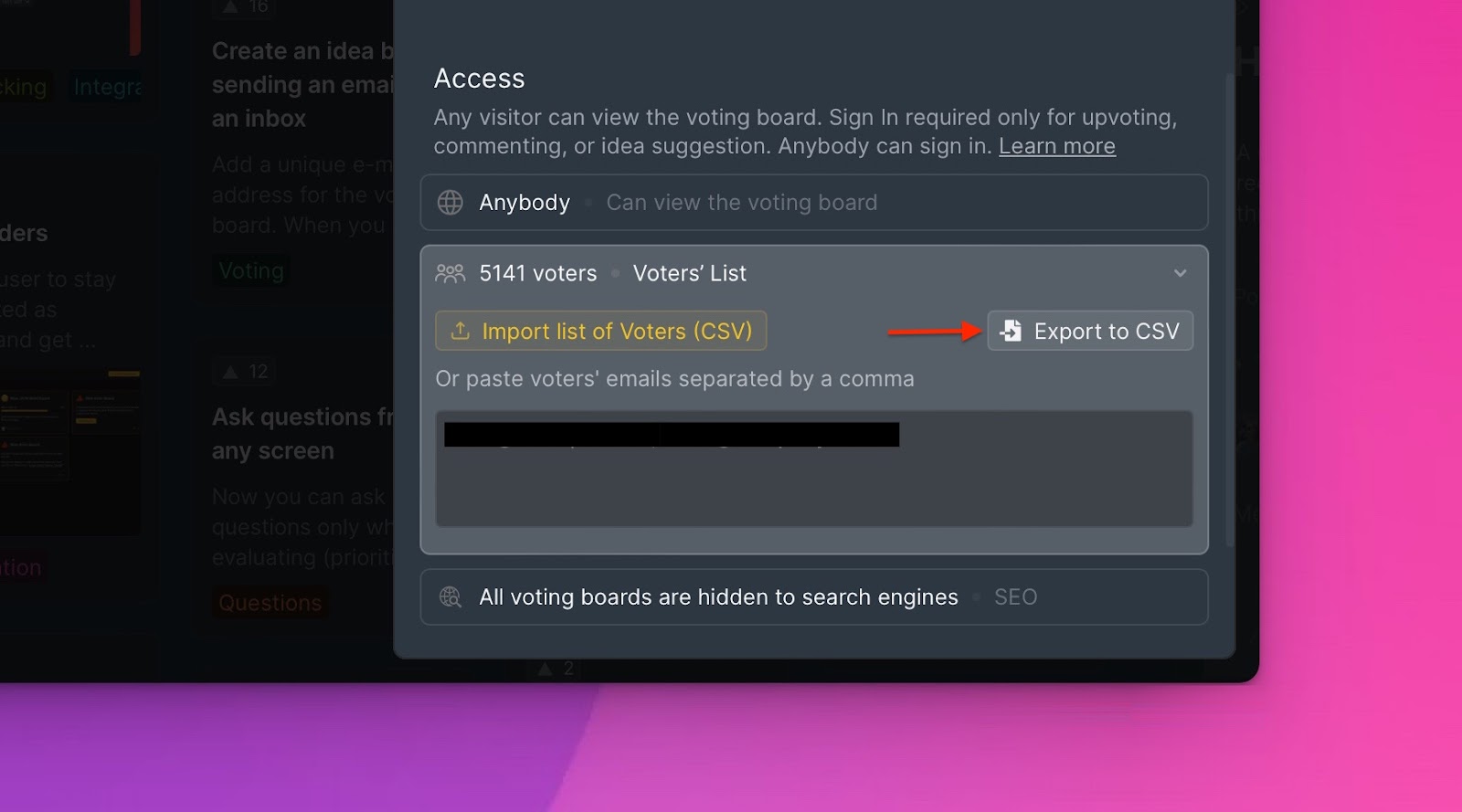Different sets of data can be exported from Ducalis. There are also different methods used to export them.
Data can be exported directly to its destination or can be exported in a certain format and stored somewhere for later use.
Methods used to export data include:
- Sync back fields with data to your tracker,
- Push issues and feedback from Ducalis to your tracker,
- Export Voters by CSV file.
Sync back fields to A task tracker
After connecting a task tracker with Ducalis, you can activate back sync. It allows you to export data like scores, score status, criteria data, priority number, and alignment links to your task tracker such as Jira Cloud, Jira Server, Asana, ClickUp, Trello, and YouTrack.
You can switch it on under Sync settings.
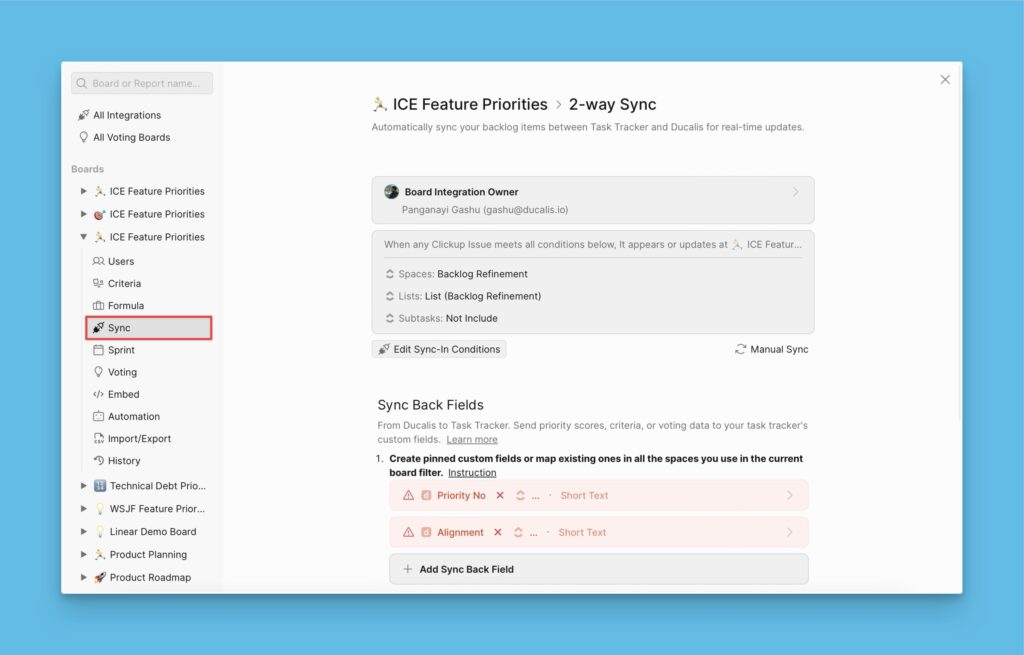
Access Backlog Management settings by clicking on Sync found in the bottom right corner of the board.
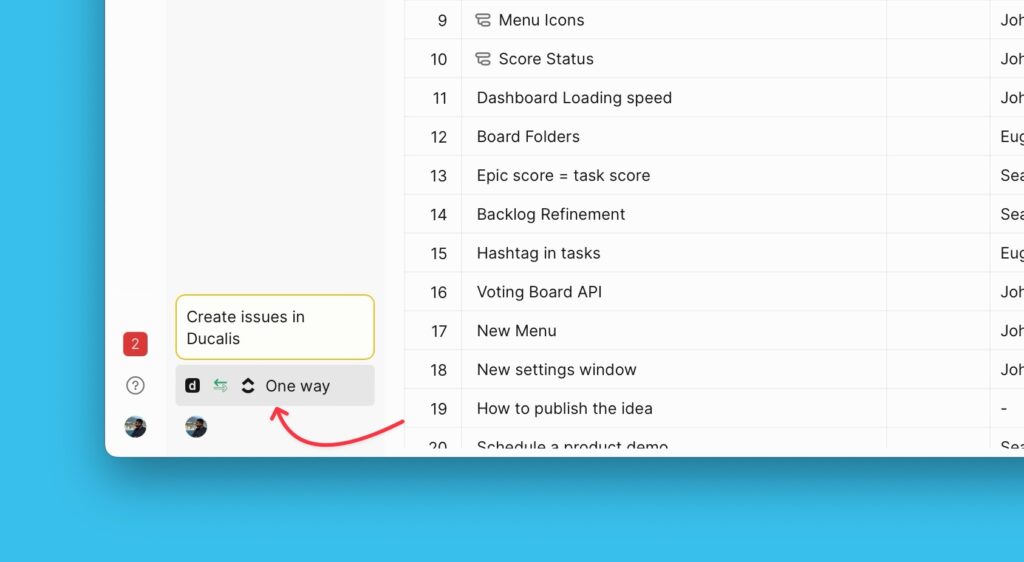
When activating you have the option to choose which data fields you want to sync back to your task tracker.
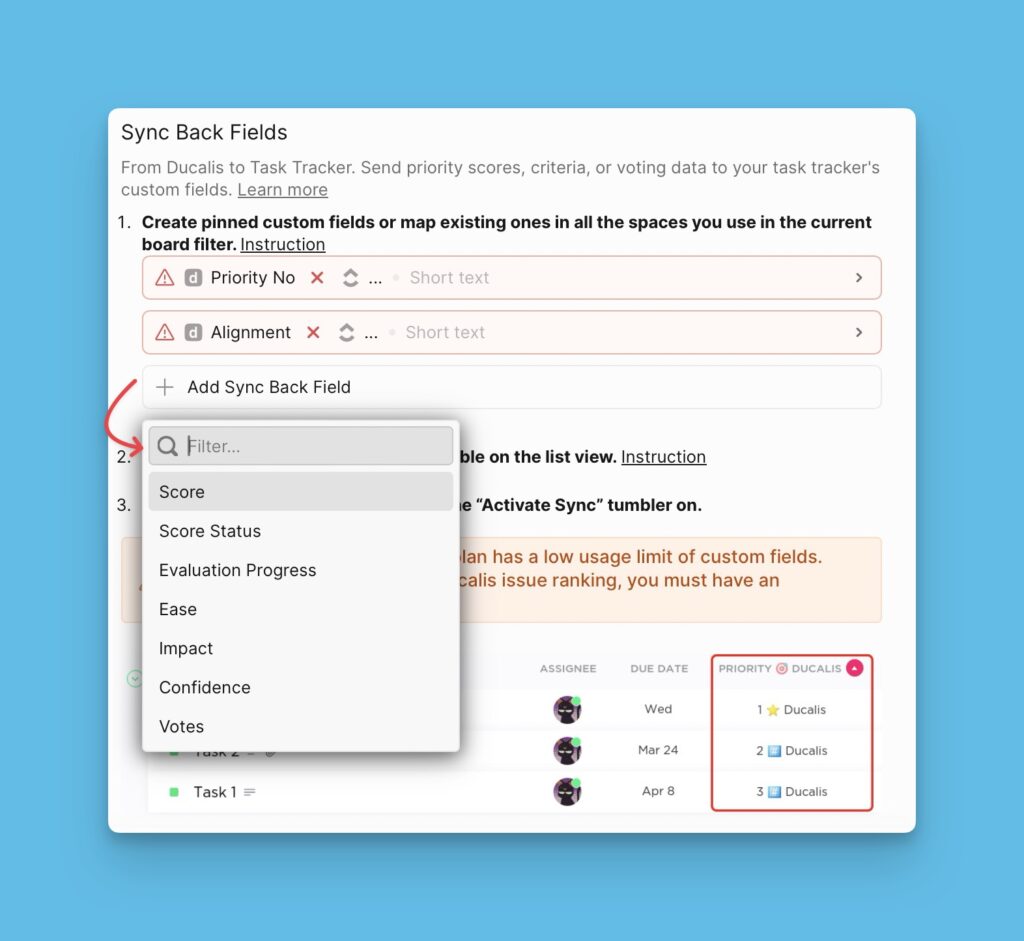
The data is synced to your task tracker at a date and time that you set. But there is also an option for instant sync whenever you want to.
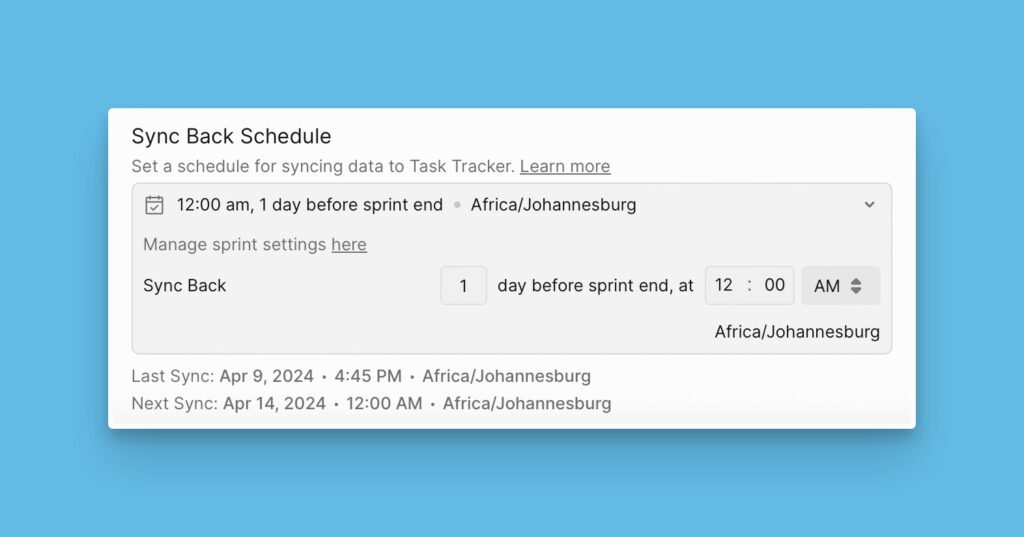
An overview of how Back sync works.
2-Way Sync With Different Trackers
Here you can find the articles about every tracker Ducalis has integration with:
- Back Sync With Jira Cloud
- Back Sync With Jira Server
- Back Sync With Asana
- Back Sync With ClickUp
- Back Sync With Trello
- Back Sync With YouTrack
Push Issues and feedback from Ducalis To Tracker
This feature allows you to export the issues that you create in a Ducalis to a task tracker. You can send issues from a prioritization board or issues from a Voting board. It allows you to add issues to your task tracker backlog without having to leave Ducalis.
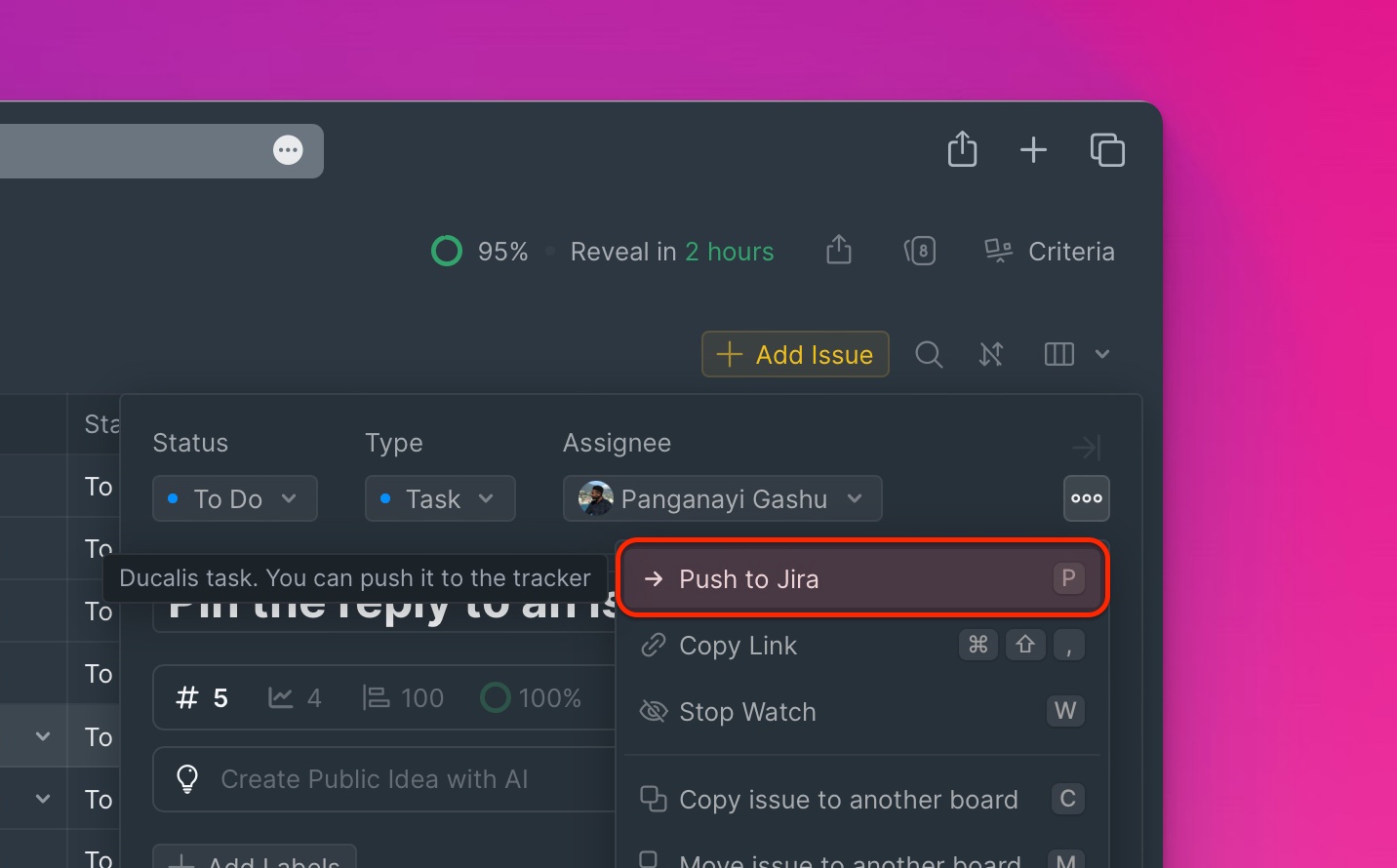
Task trackers that you can push issues to Jira Cloud, Jira Server, Asana, ClickUp, Linear, Trello, YouTrack, GitHub.
Export Voters by CSV file
If you have a voting board with users subscribed to it, you can export a list of the users in a CSV format. Some of the data exported include the users’ name, email, company name, created source (how the user was subscribed), and if the users subscribed to release notes.
Read more here.
